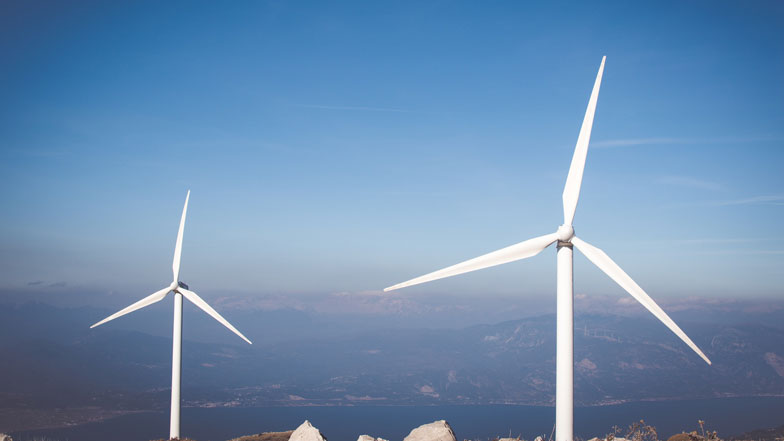
Lost your spark?
If you want to work in one of the UK’s fastest growing industries, a job in the energy sector could be the perfect career move for you. However, with such a diverse range of roles out there, knowing where to start can often be easier said than done.
Not sure what your options are? Here are some roles you could consider, and some of our top tips to help you get to there:
Energy Assessor
What they do: Whenever a building is built, a report is required detailing how energy efficient the structure is. This report is called an Energy Performance Certificate (EPC), and whether it’s for a commercial or domestic property, it’s also an essential part of the buying, selling and letting process. It’s an Energy Assessor’s job to compile this report, and make any recommendations on where energy savings or improvements to efficiency can be made.
What you need: Aside from excellent analytical skills and a methodical approach to your work, a detailed understanding of energy efficiency and surveying is absolutely essential. A degree is not necessary, but you will need to demonstrate this knowledge by holding a Certificate in Domestic Energy Assessment.
What you can earn: Somewhere around £24,000 as a basic salary, although entry-level positions may be slightly lower.
Perfect for: People who feel like they are forever turning off the lights.
Our advice: Although you will need to have a Certificate in Domestic Energy Assessment to pursue this as a career, no formal requirements are necessary in order to gain this qualification. In fact, there are a number of different places out there to help you study and gain your certification independently.
Gas Engineer
What they do: Install, repair and maintain gas appliances. Gas Engineers can either specialise in installation or service, whether it’s for individual use to help with heating in the home, or maintaining systems in a large office building or even on industrial estates, there’s no job too large (or small) for a Gas Engineer.
What you need: To be good with your hands is a no-brainer. Gas Engineering is a skilled trade, meaning that exceptional technical and problem solving skills are similarly essential. A degree is not necessary.
What you can earn: Starting salary will be around £14,000, although this will raise to around £30,000 once fully qualified and experienced.
Perfect for: People who are overly attached to their radiators
Our advice: Apprenticeships are readily available in this field, with a whole host of the UK’s top gas providers on a continuous recruitment drive for these positions. But be warned: there will be a maths test as part of the process, so make sure you’re suitably prepared. It’s also worth noting that the job is quite physically demanding and those who struggle to work in small spaces or at heights may suffer.
Geophysicist
What they do: Study the internal structure and composition of the Earth. This could be through electrical surveying, studying gravitational pull or magnetic fields, and even using seismology. Geophysicists are absolutely vital in the energy industry, helping to appraise and measure feasibility for new areas and use their skills to find viable oil and gas reserves.
What you need: First and foremost, you’ll need to be passionate about science. Excellent research skills and attention to detail are also incredibly important in this field, as your findings will directly influence some big business decisions. If you’re looking to work in an office every day, this definitely isn’t the job for you. Potential workplaces could include some pretty remote locations, ranging from offshore oil rigs and ships through to deserts and tundra.
What you can earn: Starting salary will typical range from £25,000 to £30,000, but can reach around £75,000 for experts in the field.
Perfect for: People who rock (or similar terrible joke about geology).
Our advice: Experience is absolutely essential for anyone looking to move into this field. Internships with government organisations or geophysical consulting companies are great ways of building your skills as a Geophysicist. If you’re currently still studying geology or physics at university, speak to department members and professors to see if they can help with work experience positions.
Renewable Energy
What they do: Work with energy mediums that can be naturally replenished. Examples include working within solar energy (installing solar panels, for example), wind power (e.g. helping to maintain offshore wind farms), or working with hydroelectricity (e.g. as a Hydrologist or Hydro Engineer). Other sources include, but are not limited to, rain, tidal flow, biomass and geothermal energy.
What you need: A passion for renewable energy and developing environmentally friendly energy sources. Other attributes include excellent problem solving and mathematical skills, and a practical approach to your work. You will also generally need at least a Bachelor’s Degree in Engineering.
What you can earn: This will be entirely dependent on your position and the medium you want to work with. Potential salaries can be anywhere between £20,000 as an entry-level engineer, through to six-figure salaries for Directors or Project Leads.
Perfect for: People who are eco-friendly.
Our advice: Renewable energy is a rapidly growing industry. However, although the focus is often on engineering, a number of other positions in the discipline exist for those who want to contribute towards the cause. Law, accountancy, tax, project management and even marketing and PR positions are all available within the industry, and could be a great way to find the right renewable energy career that fits your skill set.
Upstream/Downstream Oil and Gas Engineers
What they do: Work within the production process of the oil and gas industry. Upstream Engineers locate and extract underground or underwater oil reserves. Downstream Engineers process the materials found within the upstream process, and refine them into a finished product (such as petrol or gasoline) which is then distributed directly to their customers.
What you need: Aside from the technical capabilities needed to do the job, drive and enthusiasm are essential in this industry. As with Geophysicists, this position may involve a lot of relocation, so an openness to new working environments and the ability to pick new things up quickly and efficiently can also be key. A degree in a science or engineering discipline will be a pre-requisite.
What you can earn: This will depend on your location and experience level. As a general guideline, initial salary may start at around the £20,000 mark, but more senior engineers could reach a figure closer to £50,000. Management positions may be even more lucrative.
Perfect for: People who look great in overalls.
Our advice: Aside from more formal qualifications, such as a degree or master’s degree (not essential for all employers, but will provide more opportunities), a good level of physical fitness is also required of most candidates. Engineering in this industry can be incredibly physically demanding, so don’t be tempted to place too much precedence on mental attributes when it comes to your applications.
View all Upstream/Downstream jobs
Other jobs in energy to consider: Energy Conservation Officer, Energy Manager, Environmental Consultant, Mudlogger, Offshore Installation Manager, Solar Panel Person (definitely a thing).
Top tips
Here are some of our top tips for finding a job in the energy industry:
- Be focused – Where do you want your career to take you? What area do you want to specialise in? With thousands of different jobs available, and a wide range of different energy types to work with, saying you want to work in the energy industry is not enough to take you where you want to go.
- Be hands-on – Many energy jobs will require previous experience to get started. But how do you get experience when no-one gives you a first chance? A number of ways actually. Work experience, internships and apprenticeships are all great examples of how to learn in a practical setting, and start adding the right experience to your CV.
- Be knowledgeable – Once you’ve decided where you want to go, start studying. Some positions will require a degree, or even masters degree, as a pre-requisite. However, even where this is not the case, a specific qualification is usually an entry requirement. Most of these can be taken independently, so there’s no excuse not to get going.
- Be versatile – Working in the energy industry means you’ll be working within one of the fastest growing sectors in the world. Keeping up-to-date with the latest developments is absolutely essential, and can be a great way to impress when it comes to the interview.
- Be open to opportunities – Career progression within the energy industry can come relatively quickly, especially for those open to working away from home. Searching for international opportunities is a great way to get ahead if you’d consider moving slightly further afield.
Ready to find your ideal position in the energy industry? View all jobs in energy now.





